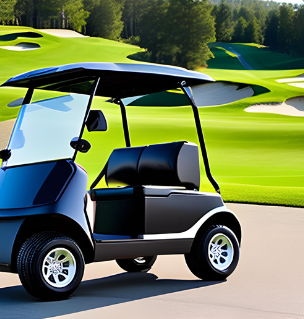Can You Get a DUI on a Golf Cart? Understanding the Legalities

On golf courses, in resorts, and even in some residential neighborhoods, golf carts are a common and widely used means of transportation. They are compact automobiles that may be fueled by petrol or electricity and are intended for travel over shorter distances. The use of a golf cart is subject to a number of rules, regulations, and laws, despite the fact that these vehicles may seem to be risk-free and blameless. The subject of whether or not it is possible to get a DUI (Driving Under the Influence) while operating a golf cart is one that is asked rather often. In this piece, we’ll go through the rules that apply to drinking while driving a golf cart.
Contents
- 1 Understanding DUI
- 2 Defining a Golf Cart
- 3 Golf Cart Regulations
- 4 DUI and Golf Carts
- 5 Enforcement and Penalties
- 6 Can You Be Charged with a DUI While Operating a Golf Cart?
- 7 DUI Checkpoints and Golf Cart Operators
- 8 Comparing Golf Cart DUI Regulations to Standard Vehicle DUI Laws
- 9 Alternatives to Driving Under the Influence on a Golf Cart
- 10 Safety Precautions and Responsible Behavior While Operating a Golf Cart
- 11 FAQs on Can You Get a DUI on a Golf Cart?
- 12 Conclusion
- 13 Trending Now
Understanding DUI
Driving under the influence, or DUI for short, refers to operating a motor vehicle when impaired by alcohol, drugs, or any other substance. Driving While Intoxicated is shortened to “DUI.” Driving a car while under the influence of drugs or alcohol is illegal. Although the specific regulations that regulate DUI often differ from one jurisdiction to another, the overarching idea stays the same.
Defining a Golf Cart
Before delving into the legality of a DUI on a golf cart, it’s important to understand what constitutes a golf cart in the eyes of the law. In most jurisdictions, a golf cart is categorized as a low-speed vehicle that is not intended for use on public roads or highways. They are primarily designed for recreational use, primarily on golf courses and private properties.
Golf Cart Regulations
To better understand the implications of DUI on a golf cart, it’s crucial to consider the specific regulations and laws that apply to golf cart operations. Because of the potential for these laws to be different depending on the jurisdiction, it is essential to be aware of the rules that apply in your particular location. The following are some general rules and regulations:
- Restricted Areas: Golf carts are typically confined to specific areas, such as golf courses, resorts, or private properties. Operating a golf cart outside of these designated areas may be considered illegal.
- Speed Limits: Golf carts usually have a limited maximum speed. Exceeding this speed limit may result in penalties or fines, even if you are not under the influence.
- Licensing and Age Requirements: Some jurisdictions require a valid driver’s license to operate a golf cart, while others have age restrictions. Checking the local laws to see what the criteria are in your region can help you out immensely.
- Passenger Limitations: Golf carts often have restrictions on the number of passengers they can carry. Exceeding this limit can result in penalties.
DUI and Golf Carts

While golf carts are not typically intended for use on public roads, the question of whether you can receive a DUI while operating one still arises. The answer to this issue is going to be different for different people depending on the particular rules and regulations that apply in your country. On the other hand, it is essential to keep in mind that DUI rules, in many jurisdictions, apply to any motor vehicle, whatever the purpose for which it was designed.
Driving a golf cart while intoxicated has the same potential legal implications as driving a vehicle or truck in several jurisdictions. This implies that if you are discovered driving a golf cart while under the influence of alcohol, you might be charged with driving under the influence of alcohol and face consequences such as fines, the suspension of your license, and even the possibility of serving time in prison.
The rationale behind DUI laws applying to golf carts is to ensure the safety of both the driver and others who may be sharing the road or area with the golf cart. Intoxication can impair judgment, reaction time, and coordination, making it dangerous to operate any type of vehicle, including golf carts.
Enforcement and Penalties
Enforcement of DUI laws concerning golf carts may vary depending on the jurisdiction. In some areas, law enforcement officers actively patrol golf courses and private properties to ensure compliance with DUI regulations. They may conduct sobriety tests and issue citations or make arrests if they suspect a driver is impaired.
If you are caught driving under the influence while operating a golf cart, you might face penalties comparable to those for a standard DUI offense. These punishments often consist of monetary fines, requirements to participate in alcohol education programs, supervised probation, community service, and in certain instances, incarceration. In addition, a conviction for driving under the influence of alcohol may have long-lasting repercussions, such as higher insurance premiums and a permanent criminal record.
Can You Be Charged with a DUI While Operating a Golf Cart?
Golf carts are often used for transportation on golf courses, in gated communities, and during other leisure activities. However, you should be aware that driving a golf cart while under the influence of alcohol or drugs is illegal. What you must know is as follows.
- DUI Definition: DUI stands for Driving Under the Influence. While most DUI laws primarily apply to motor vehicles on public roads, the definition of a “vehicle” can vary depending on local laws and jurisdictions. In some cases, golf carts may fall under the definition of a “vehicle” for DUI enforcement purposes.
- Jurisdictional Variations: The rules regarding DUI and golf carts can vary by state or country. Some jurisdictions consider golf carts as motor vehicles subject to DUI laws, while others may have specific regulations or exemptions for golf carts. It’s crucial that you learn the local laws that apply to you.
DUI Checkpoints and Golf Cart Operators
DUI checkpoints are locations where law enforcement officers conduct routine checks to identify and apprehend drivers operating under the influence. While DUI checkpoints are typically established for regular motor vehicles, some jurisdictions may include golf cart operators in these enforcement efforts.
- Local Enforcement Policies: Local law enforcement agencies determine the scope and application of DUI checkpoints, including whether golf cart operators will be subject to scrutiny. It’s advisable to check local regulations or consult with law enforcement authorities to understand how they handle DUI checkpoints and golf carts in your area.
DUI Education and Awareness for Golf Cart Users
Promoting DUI education and awareness among golf cart users is crucial for maintaining a safe environment. Here are some key points to consider:
- Education Programs: Golf courses, communities, and event organizers can implement educational initiatives to raise awareness about the risks of operating a golf cart under the influence. These programs can include informational campaigns, signage, and training sessions to encourage responsible behavior.
- Safe Ride Alternatives: Educating golf cart users about alternative transportation options can help prevent DUI incidents. Promote the use of designated drivers, golf course shuttles, or ride-sharing services as alternatives to driving under the influence.
Comparing Golf Cart DUI Regulations to Standard Vehicle DUI Laws
DUI laws for golf carts may differ from those governing standard motor vehicles. Here’s a comparison:
- Blood Alcohol Concentration (BAC) Limits: The legal BAC limit for operating a golf cart may vary from the limit for motor vehicles. In some jurisdictions, the BAC limit for golf carts may be lower or higher than the standard vehicle limit.
- Licensing Requirements: Golf carts may not require a driver’s license in some areas, leading to different regulations regarding DUI offenses. However, it’s important to note that driving under the influence, regardless of licensing requirements, can still lead to legal consequences.
Alternatives to Driving Under the Influence on a Golf Cart
To avoid the risks associated with operating a golf cart under the influence, consider these alternatives:
- Designated Drivers: Assign a sober individual to operate the golf cart if you plan to consume alcohol or drugs. This ensures that someone responsible is in control of the vehicle.
- Public Transportation or Shuttles: Utilize public transportation or golf course shuttles when available to travel between locations without operating a golf cart under the influence.
Safety Precautions and Responsible Behavior While Operating a Golf Cart
Even if you are not legally required to adhere to standard vehicle DUI laws while operating a golf cart, practicing responsible behavior and following safety precautions is essential:
- Sobriety and Alertness: Always operate a golf cart while sober and alert. Accidents and injuries are more likely to occur when someone’s judgment, response time, and coordination are impaired by alcohol or drugs.
- Obey Traffic Laws: Follow all applicable traffic laws and regulations while operating a golf cart. Adhere to speed limits, yield to pedestrians, and exercise caution at intersections.
- Seat Belts and Passenger Limits: Ensure that all occupants are seated properly and that seat belts, if available, are worn. Respect the passenger limits specified for the golf cart.
FAQs on Can You Get a DUI on a Golf Cart?
Can you get a DUI on a golf cart?
In many places, even golf carts are considered “motor vehicles” for the purposes of laws banning drunk driving. Driving a golf cart while under the influence of alcohol or drugs might result in legal repercussions that are similar to those that would be incurred by driving a standard automobile or truck.
What are the specific regulations for operating a golf cart?
Depending on the jurisdiction, the rules and regulations for driving a golf cart might be quite different. The most common types of rules are passenger limits, age requirements, restricted zones, speed limits, and licensing and age requirements. It is crucial to be well-versed in the regulations that apply in your area.
Why do DUI laws apply to golf carts?
DUI laws apply to golf carts to ensure the safety of both the driver and others who may be sharing the road or area with the golf cart. Intoxication can impair judgment, reaction time, and coordination, making it dangerous to operate any type of vehicle, including golf carts.
Can I be arrested for a DUI on a golf cart even if I’m not on a public road?
Yes, in many jurisdictions, DUI laws apply to any motor vehicle, regardless of whether it is being operated on a public road or private property. If you are caught driving a golf cart while intoxicated, you could still face charges of DUI.
What are the penalties for a DUI on a golf cart?
If you are caught driving under the influence while operating a golf cart, you might face penalties comparable to those for a standard DUI offense. Fines, forced attendance at alcohol education programs, probation, community service, and even jail time may be among the possible outcomes in certain instances. Furthermore, a DUI conviction may have long-term consequences, such as increased insurance premiums and a recorded criminal history.
Conclusion
While golf carts may seem like harmless vehicles used for recreational purposes, it’s essential to understand the legal implications surrounding their operation. Although the regulations regarding DUI and golf carts can vary by jurisdiction, receiving a DUI while driving a golf cart is generally possible, especially if it’s being operated outside of designated areas or if the driver is impaired. To prevent legal trouble, it is essential to learn the rules and legislation that apply in your region. Ultimately, prioritizing safety and responsible behavior should always be the guiding principle when operating any type of vehicle, including a golf cart.










![Who Makes Precept Golf Balls? [Learn Today]](https://sportsalizer.com/wp-content/uploads/2023/01/Who-Makes-Precept-Golf-Balls-768x512.webp)